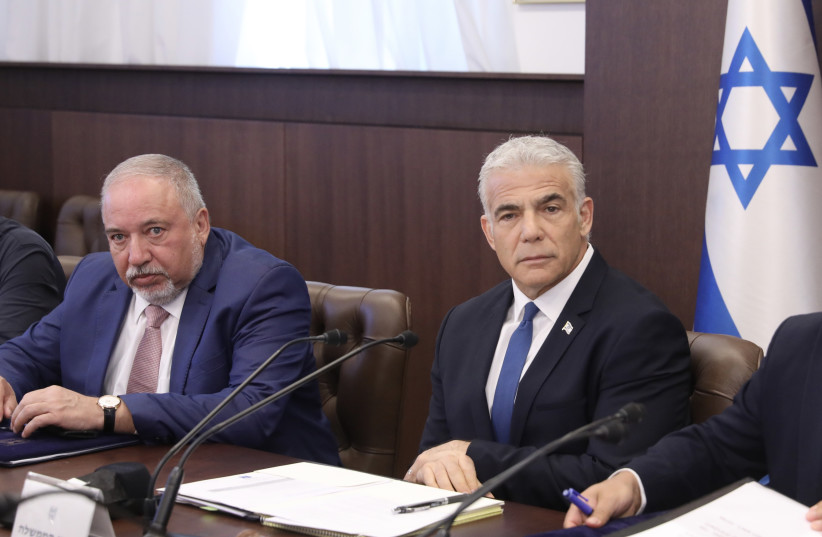Moscow’s decision to shut down Jewish Agency activities in Russia was just a matter of time, a predictable response to Israel increasingly backing Ukraine in its war with Russia.
From the start of Russia’s invasion of its neighbor, Israeli officials expressed concern that if Jerusalem took too public a position supporting Ukraine and condemning Russia, it could end up harming Israeli interests.
The Israeli interests were defined as twofold.
First, the ability to continue to act militarily in Syria – where the Russians hold the key to the skies – in order to keep the Iranians from setting up a beachhead there. And second, to ensure the safety and well-being of the Jewish community in Russia and the ability of its members to immigrate to Israel if they so desire.
According to estimates, there are some 600,000 Russians who are eligible to immigrate to Israel under the Law of Return, which grants automatic citizenship to anyone with one Jewish grandparent.

During the first few weeks of the war, Israel succeeded in staying above the fray – much to the chagrin of many both in Israel and abroad who wanted Israel to take a much more assertive position against Russia. With time, increasing Russian atrocities and pressure for Israel to take a moral stand, however, Jerusalem began to slide off the fence and side more and more publicly with Ukraine.
As such, it was clear that Moscow would respond. What was not clear was where or how. Russia’s intent to stop Jewish Agency activities inside its borders, something it has allowed for years, answers that question, at least for now.
This is wrong.
Closing Jewish Agency offices in Russia, offices that facilitate those wanting to move to Israel, smells of a first step in blocking emigration to Israel, a throwback to a much darker period in Russia that ended with the fall of the Soviet Union in 1989.
If Russia has a problem with Israel’s policies regarding the Ukrainian war, it should take those problems up directly with Israel, and not take its anger out on its Jewish residents who have absolutely nothing to do with Jerusalem’s policy.
That being said, the question facing Jerusalem now is how to get Russia’s policy toward the Jewish Agency changed. Unfortunately, an approach that might have been available in the past – directly talking to Russian President Vladimir Putin – is not an option, at least not for current Prime Minister Yair Lapid.
Unlike his predecessors Benjamin Netanyahu and even Naftali Bennett, Lapid does not have a direct line to the Kremlin. Putin never called Lapid to congratulate him on becoming prime minister, apparently unhappy with the criticism of Russia that Lapid voiced as foreign minister.
This lack of a direct channel of communication is detrimental to Israel’s interests. Putin is no boy scout, but Israel’s leaders need to have a direct line of communication with him. If Lapid cannot do this, someone else needs to be enlisted who can.
President Isaac Herzog seems the perfect candidate, someone who – as his efforts in repairing ties with Turkey have shown – has turned into a sort of diplomatic troubleshooter.
As a former head of the Jewish Agency, he knows the organization’s activities in Russia and he went there in December of 2018 to inspect them up close. During that trip, Herzog had a meeting with Russian Foreign Minister Sergei Lavrov, during which they patched up tensions following the downing of a Russian intelligence plane in Syria three months earlier.
In the meantime, Lapid should strive to turn the volume with Russia down, not up. While Lapid’s issuing of a veiled threat Sunday to Moscow that its moves against the Jewish Agency would have repercussions on Israeli-Russian relations is understandable, it is unlikely to be effective. The front-page headline of one of Israel’s leading papers on Monday reporting on Lapid’s comments was downright ridiculous: “An ultimatum to Russia.”
Russia should not be bludgeoning Israel by taking action against the Jewish Agency. But Israel should likewise not be issuing ultimatums to Russia. Rather this issue – which is an important Israeli and Jewish one – needs to be dealt with quietly, in direct contact between leaders of both countries.
